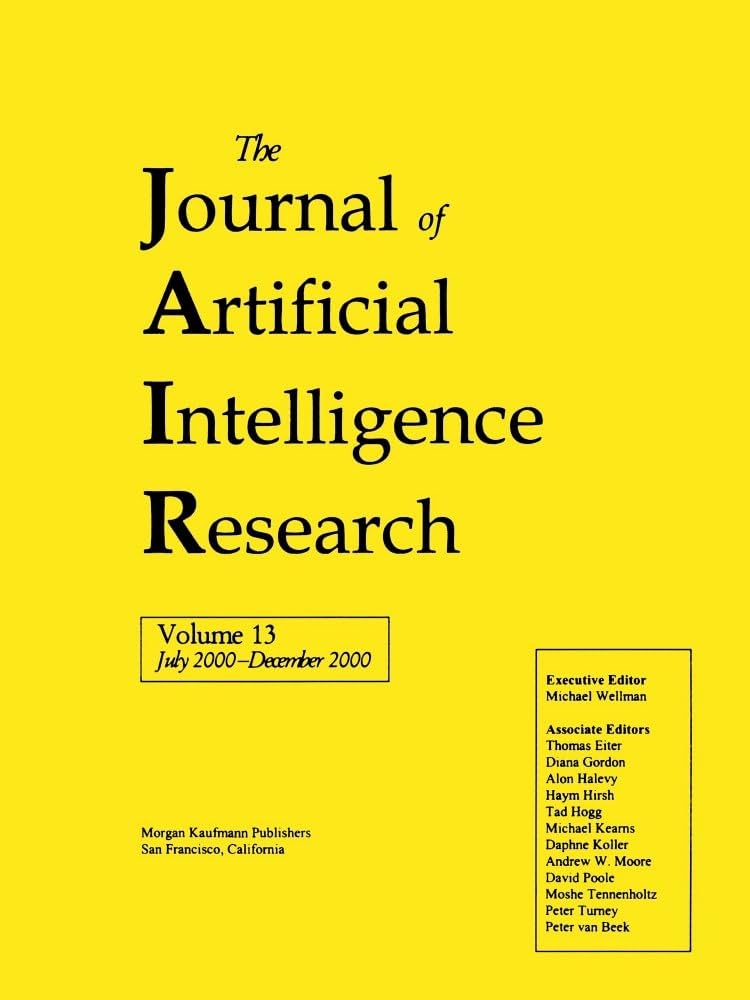简单条件下最优数值规划的LM-Cut启发式族
IF 4
3区 计算机科学
Q2 COMPUTER SCIENCE, ARTIFICIAL INTELLIGENCE
引用次数: 2
摘要
LM-cut启发式方法,无论是单独的还是作为算子计数框架的一部分,都是经典规划中最成功的启发式方法之一。在本文中,我们将LM-cut及其在算子计数中的应用推广到具有简单条件和简单数值效果的最优数值规划,即数值状态变量的线性表达式和以常量增加或减少这些变量的动作。我们基于这些规划任务的删除-放松版本引入了hmaxbd的一个变体(先前提出的数值hmax启发式),并表明,尽管我们的变体本身是不可接受的,但我们的变体产生了经典LM-cut启发式的一个可接受的数值版本。我们对这类数值规划任务的三种现有启发式方法进行了分类,并引入了LM-cut族,证明了在简单条件下,所有对现有的最大启发式和LM-cut启发式之间的优势性或不可比性。我们广泛的经验评估表明,新的LM-cut启发式方法,无论是作为其本身还是作为算子计数框架的一部分,都是这类数值规划问题的最新技术。本文章由计算机程序翻译,如有差异,请以英文原文为准。
The LM-Cut Heuristic Family for Optimal Numeric Planning with Simple Conditions
The LM-cut heuristic, both alone and as part of the operator counting framework, represents one of the most successful heuristics for classical planning. In this paper, we generalize LM-cut and its use in operator counting to optimal numeric planning with simple conditions and simple numeric effects, i.e., linear expressions over numeric state variables and actions that increase or decrease such variables by constant quantities. We introduce a variant of hmaxhbd (a previously proposed numeric hmax heuristic) based on the delete-relaxed version of such planning tasks and show that, although inadmissible by itself, our variant yields a numeric version of the classical LM-cut heuristic which is admissible. We classify the three existing families of heuristics for this class of numeric planning tasks and introduce the LM-cut family, proving dominance or incomparability between all pairs of existing max and LM-cut heuristics for numeric planning with simple conditions. Our extensive empirical evaluation shows that the new LM-cut heuristic, both on its own and as part of the operator counting framework, is the state-of-the-art for this class of numeric planning problem.
求助全文
通过发布文献求助,成功后即可免费获取论文全文。
去求助
来源期刊

Journal of Artificial Intelligence Research
工程技术-计算机:人工智能
CiteScore
9.60
自引率
4.00%
发文量
98
审稿时长
4 months
期刊介绍:
JAIR(ISSN 1076 - 9757) covers all areas of artificial intelligence (AI), publishing refereed research articles, survey articles, and technical notes. Established in 1993 as one of the first electronic scientific journals, JAIR is indexed by INSPEC, Science Citation Index, and MathSciNet. JAIR reviews papers within approximately three months of submission and publishes accepted articles on the internet immediately upon receiving the final versions. JAIR articles are published for free distribution on the internet by the AI Access Foundation, and for purchase in bound volumes by AAAI Press.
 求助内容:
求助内容: 应助结果提醒方式:
应助结果提醒方式:


